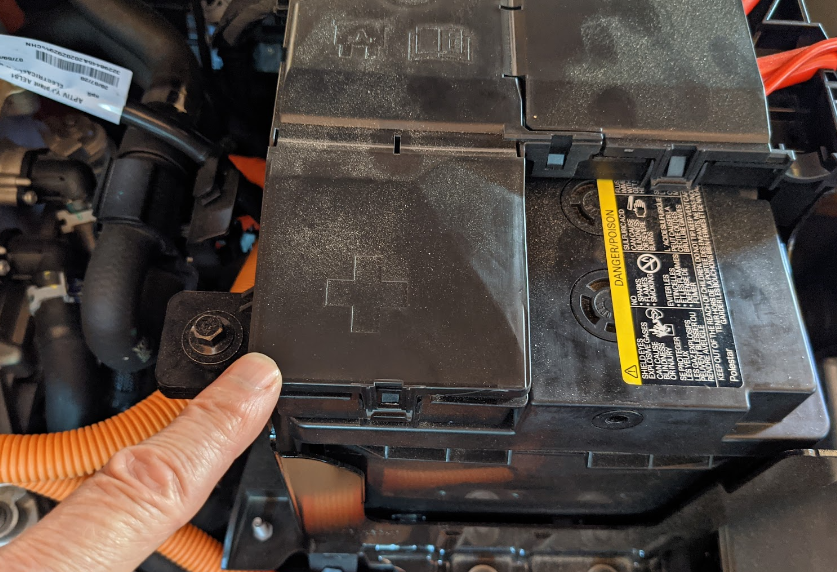Die Zukunft vorantreiben: Der Aufstieg des Batterieindustriesektors
In recent years, there has been a significant increase in the demand for batteries. From portable electronics to electric vehicles, batteries have become an essential part of our everyday lives. This growing demand has led to the rise of the battery industrial sector, which is now playing a crucial role in shaping the future of energy storage.
With the increasing concern for global warming and the need to reduce greenhouse gas emissions, there is a growing emphasis on renewable energy sources. However, one of the major challenges with renewable energy is the intermittent nature of sources such as solar and wind. This is where batteries come into play. They provide a reliable and efficient way to store excess energy generated during peak times and release it during periods of low production.
The battery industrial sector is not limited to just one type of battery. There are various types of batteries available, each with its own unique characteristics and applications. One of the most common types is the lithium-ion battery, which is widely used in portable electronics and electric vehicles. These batteries offer high energy density, long cycle life, and low self-discharge rates, making them ideal for applications that require a compact and lightweight power source.
In recent years, there have been significant advancements in battery technology, leading to the development of more efficient and cost-effective batteries. For instance, researchers are working on solid-state batteries, which offer higher energy density and improved safety compared to traditional lithium-ion batteries. These advancements are expected to revolutionize the battery industrial sector, making batteries more affordable and accessible to a wider range of applications.
The rise of the battery industrial sector has also created new opportunities for job growth and economic development. Battery manufacturing facilities require a skilled workforce to design, produce, and maintain batteries. As the demand for batteries continues to increase, so does the need for skilled workers in this sector. This has led to the creation of new jobs and the growth of local economies in regions where battery manufacturing facilities are located.
Furthermore, the battery industrial sector has also triggered innovation and research in related fields. Scientists and engineers are constantly exploring new materials and technologies to improve battery performance and energy storage capabilities. This has led to collaborations between universities, research institutions, and private companies, fostering a culture of innovation and technological advancement.
In addition to the environmental benefits and economic opportunities, the battery industrial sector is also driving the transition to a sustainable energy future. As more renewable energy sources are integrated into the power grid, there is a need for large-scale energy storage solutions. Batteries can play a crucial role in balancing supply and demand, stabilizing the grid, and enabling the integration of renewable energy sources on a larger scale.
However, the battery industrial sector is not without its challenges. One of the major concerns is the environmental impact of battery production and disposal. The extraction of raw materials, such as lithium, cobalt, and nickel, can have adverse effects on the environment if not managed properly. Additionally, the disposal of batteries after their end-of-life can lead to pollution if not handled through proper recycling processes.

To mitigate these challenges, there is a need for sustainable battery production and recycling practices. Governments and industry stakeholders are working together to develop regulations and standards for responsible battery manufacturing and disposal. Additionally, efforts are underway to develop new battery chemistries that rely on abundant and environmentally friendly materials.
In conclusion, the rise of the battery industrial sector is transforming the way we store and utilize energy. Batteries are becoming an indispensable component of our energy infrastructure, enabling the widespread adoption of renewable energy sources and driving the transition to a sustainable future. With ongoing advancements in battery technology and increasing investments in research and development, the future of the battery industrial sector looks promising.
-
 Einführung Lithium-Eisenphosphat-Batterien (LiFePO4) erfreuen sich aufgrund ihrer Haltbarkeit, langen Lebensdauer und überlegenen Leistung im Vergleich zu herkömmlichen Blei-Säure-Batterien bei Motorradliebhabern immer größerer Beliebtheit. Diese Batterien sind für ihre hohe Energiedichte, niedrige Entladeraten und ihren sicheren Betrieb bekannt und eignen sich daher ideal für Motorradanwendungen. In diesem Artikel besprechen wir die Vorteile von...Weiterlesen
Einführung Lithium-Eisenphosphat-Batterien (LiFePO4) erfreuen sich aufgrund ihrer Haltbarkeit, langen Lebensdauer und überlegenen Leistung im Vergleich zu herkömmlichen Blei-Säure-Batterien bei Motorradliebhabern immer größerer Beliebtheit. Diese Batterien sind für ihre hohe Energiedichte, niedrige Entladeraten und ihren sicheren Betrieb bekannt und eignen sich daher ideal für Motorradanwendungen. In diesem Artikel besprechen wir die Vorteile von...Weiterlesen -
 Introduction Industrial machinery plays a crucial role in various sectors. From manufacturing plants to construction sites, these machines require a constant and reliable source of power. Industrial battery chargers have emerged as a game-changer in maintaining the power supply for these machines. This article will delve into the various aspects of industrial battery chargers, their importance, functionality, and advancements....Weiterlesen
Introduction Industrial machinery plays a crucial role in various sectors. From manufacturing plants to construction sites, these machines require a constant and reliable source of power. Industrial battery chargers have emerged as a game-changer in maintaining the power supply for these machines. This article will delve into the various aspects of industrial battery chargers, their importance, functionality, and advancements....Weiterlesen -
 Einleitung Mit der steigenden Nachfrage nach Energiespeicherlösungen ist die Entwicklung von Hochleistungsbatterien von entscheidender Bedeutung geworden. Eine solche Batterie, die große Aufmerksamkeit erregt hat, ist die 3,2-V-LiFePO4-Batterie. In diesem Artikel werden die optimierte Effizienz und die langanhaltende Leistung dieser fortschrittlichen Batterietechnologie untersucht. Optimierte Effizienz Der 3,2V LiFePO4-Akku zeichnet sich durch außergewöhnliche...Weiterlesen
Einleitung Mit der steigenden Nachfrage nach Energiespeicherlösungen ist die Entwicklung von Hochleistungsbatterien von entscheidender Bedeutung geworden. Eine solche Batterie, die große Aufmerksamkeit erregt hat, ist die 3,2-V-LiFePO4-Batterie. In diesem Artikel werden die optimierte Effizienz und die langanhaltende Leistung dieser fortschrittlichen Batterietechnologie untersucht. Optimierte Effizienz Der 3,2V LiFePO4-Akku zeichnet sich durch außergewöhnliche...Weiterlesen -
 Introduction: Lithium iron phosphate (LiFePO4) batteries have gained significant attention in recent years due to their high energy density, long cycle life, and increased safety compared to other lithium-ion battery chemistries. In this article, we will delve into the longevity of a specific LiFePO4 battery with a capacity of 100Ah, discussing its lifespan and factors that can influence its performance...Weiterlesen
Introduction: Lithium iron phosphate (LiFePO4) batteries have gained significant attention in recent years due to their high energy density, long cycle life, and increased safety compared to other lithium-ion battery chemistries. In this article, we will delve into the longevity of a specific LiFePO4 battery with a capacity of 100Ah, discussing its lifespan and factors that can influence its performance...Weiterlesen -
 Choosing the right battery charger for your devices can be a daunting task, especially with the numerous options available on the market. A good battery charger ensures that your devices are always powered up and ready for use. Here are some factors to consider when choosing a battery charger. 1. Type of Battery The first factor to consider...Weiterlesen
Choosing the right battery charger for your devices can be a daunting task, especially with the numerous options available on the market. A good battery charger ensures that your devices are always powered up and ready for use. Here are some factors to consider when choosing a battery charger. 1. Type of Battery The first factor to consider...Weiterlesen -
 Wenn Sie nach einer zuverlässigen und langlebigen Batterielösung für Ihre Geräte suchen, sind Sie bei der 12V 100Ah LiFePO4-Batterie genau richtig. Diese fortschrittliche Batterietechnologie bietet zahlreiche Vorteile gegenüber herkömmlichen Blei-Säure-Batterien und ist somit die ideale Wahl für eine Vielzahl von Anwendungen. Einer der bedeutendsten Vorteile der LiFePO4-Batterie ist ihre überlegene Energiedichte....Weiterlesen
Wenn Sie nach einer zuverlässigen und langlebigen Batterielösung für Ihre Geräte suchen, sind Sie bei der 12V 100Ah LiFePO4-Batterie genau richtig. Diese fortschrittliche Batterietechnologie bietet zahlreiche Vorteile gegenüber herkömmlichen Blei-Säure-Batterien und ist somit die ideale Wahl für eine Vielzahl von Anwendungen. Einer der bedeutendsten Vorteile der LiFePO4-Batterie ist ihre überlegene Energiedichte....Weiterlesen -
 Introduction Every car owner knows how important it is to have a reliable car starter battery. Without it, you can start your car and get where you need to go. The last thing you want is to be stuck on the side of the road with a dead battery. That why it essential to invest in a high-quality car...Weiterlesen
Introduction Every car owner knows how important it is to have a reliable car starter battery. Without it, you can start your car and get where you need to go. The last thing you want is to be stuck on the side of the road with a dead battery. That why it essential to invest in a high-quality car...Weiterlesen

